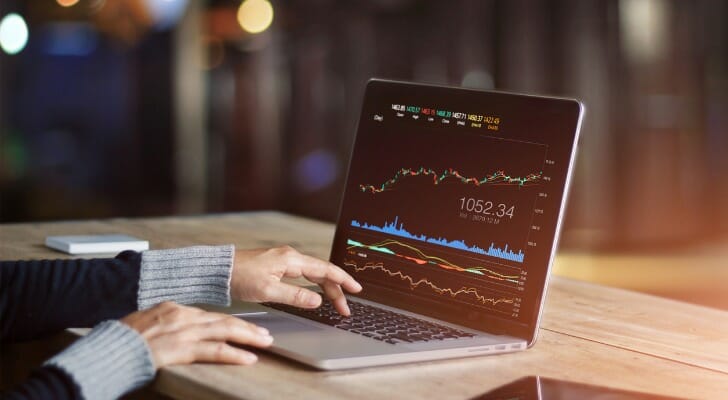A stock buyback occurs when a company buys back its own shares from the market, typically in an effort to raise its share price for a number of reasons. Stock buybacks are typically done by profitable public companies instead of providing dividends as a way to reward some investors who are ready to sell. There are, however, many reasons a stock buyback may have been done, and it could impact your portfolio in different ways. If you’re interested in a specific buyback then you may want to speak with a financial advisor to see how it could impact you.
How Stock Buybacks Work
In terms of mechanics, a stock buyback involves a company that wants to purchase back its own shares and a purchasing agent who completes the transaction. David Russell, vice president at TradeStation, says companies typically hire an investment bank to buy a certain amount of stock back. The company’s board is responsible for authorizing a buyback and determining how much of the company’s capital to allocate to the purchase.
A company can ask shareholders to return a percentage of their shares voluntarily to the company. Investors decide how much of their shares, if any, they want to sell back and at what price, based on a range determined by the company.
The other way a stock buyback can be executed is open market trading. In this scenario, the company buys its own shares on the market, the same as any other investor would, paying the market price for each share. It may sound complicated, but essentially, the company is investing in itself.
How Stock Buybacks Can Impact a Company’s Value
A stock buyback can impact a company’s value in a number of ways, depending on what the perceived motive behind the buyback is. The company is removing cash from the balance sheet and reducing the number of outstanding shares, which as you can imagine, could be viewed differently depending on who you ask. Typically, the stock looks more attractive in the short term but that doesn’t always translate to a long-term financial improvement.
No matter what the company does with the shares that are bought back, these shares are no longer counted as shares outstanding. Either the shares are canceled or held as treasury shares, but the total assets the company is holding are decreased. This could impact a company’s financial metrics such as earnings per share or the price-to-earnings ratio. Either of these could become a bit misleading compared to the actual sustainability of the stock when a buyback occurs, even if the short-term stock looks more attractive.
Why Do Companies Use Stock Buybacks?

It might seem counter-intuitive for a company to buy back shares of its own stock. After all, shouldn’t the company want those shares to be held by investors? But, there are several good reasons companies choose to pursue buybacks.
First, buying back shares can be a way to counter the potential undervaluing of the company’s stock. If a stock’s share price falls, then the company can send the market a positive signal by investing its capital in buying back shares. This can help restore confidence in the stock. That, in turn, could push share prices higher.
A stock buyback can also allow a company to reduce its cash outflows, without having to reduce the amount of the dividend paid to investors. When there are fewer shares that investors hold, the company needs to pay out fewer dividends. That allows companies to preserve capital after completing the buyback.
Buybacks reduce the number of assets on a company’s balance sheet, which increases both returns on equity and return on assets. Both are beneficial in terms of how the market views the financial stability of the company and its stock. A buyback can also result in a higher earnings per share ratio. That sends another positive signal to the market.
Russell says companies may also buy back stock to remove shares from the market that they paid to employees under stock-based compensation plans. Employees are given the option to sell back some of their shares, typically at a percentage of their total vested amount.
What Stock Buybacks Mean for Investors
Investor perceptions of a stock buyback vary. Factors include how it’s carried out and the impact on your portfolio. These factors aren’t always immediately clear.
“When a buyback is routine and expected, the market will typically price it in,” Russell says. “However, when a large increase is announced it can cause a rally – especially if a stock’s been under pressure. In that case, investors may think the company is ‘defending’ its price.”
A key upside of buybacks for investors is the reduction in the supply of shares. When there are fewer shares to go around, that can trigger a rise in prices. So after a buyback, you may own fewer shares but the shares you own are now more money. If you hold those investments in a taxable brokeage account, you won’t pay capital gains tax until you sell. If you hold your remaining shares longer than one year, you can take advantage of the long-term capital gains tax rate.
Additionally, when there are fewer shares to be traded on the open market, your overall ownership stake in the company increases. That means you could potentially benefit from a higher dividend payout going forward, since you’re entitled to a larger share of the company’s earnings.
Disadvantages to Stock Buybacks

A stock buyback could be a misfire for the company if the timing isn’t right. It can also cause trouble for investors, depending on the motivation of the buyback. For example, if a company is buying back stock to try and inflate prices to attract more investors, it could be a sign that it’s desperate to raise capital.
Let’s take a look at some of the biggest disadvantages that a stock buyback can bring.
- Increase of Required Capital: If a company announces a buyback when stock prices are high, that would require a higher outlay of capital. This may not be the best use of cash that the business has on hand.
- Trigger Higher Earnings Per Share: Normally, a higher EPS is a good thing and a sign of a healthy company. If the company is executing a buyback solely to improve the EPS, though, that doesn’t mean you’ll realize any tangible benefit in the long run. If anything, a sudden buyback announcement could mean that the company’s profits are declining. It could also mean its operational costs are too high. That puts the company on shaky ground financially.
- Debt-Driven Buybacks: Many buybacks are financed by taking on additional debt, which can hurt the long-term success of a business and the overall share price down the road for a very short-term benefit.
- Some Buybacks Conceal Executive Compensation: Many companies will reward executives with stock, diluting other shareholders. However, the buyback will conceal this because of the potential rise in stock price.
So should you worry if a company you own stock in announces a buyback? Not necessarily. It’s helpful to understand why the company has decided to buy back some of its own stock and look at the bigger picture, in terms of the company’s fundamentals.
For instance, consider how much debt the company is carrying, what type of expansion plans it may have in the works and the stock’s dividend payout history. Look at the stock’s recent performance and compare that to its historical performance to see how share prices are trending. Look at what drove the previous buybacks, if the company has done this before. Also, consider what’s happening within the broader market.
“Stock buybacks are a routine part of the market that occasionally impact prices,” Russell says. “Investors should pay attention when a stock rallies from a low on a buyback announcement. That can sometimes indicate a turnaround is taking place.”
Bottom Line
Stock buybacks occur when a publicly-traded company decides to purchase large swaths of its own stock. There are a variety of reasons a company may do this. Reducing cash outflows and countering a potential undervaluing of shares are potential reasons. A stock buyback can mean many different things for investors. Make sure to examine the situation carefully and from all angles to determine what it could mean for a continued, or potential, investment.
Tips for Stock Investing
- Working with a financial advisor can help you navigate events that can impact your portfolio, such as a stock buyback. Finding a qualified financial advisor doesn’t have to be hard. SmartAsset’s free tool matches you with up to three financial advisors who serve your area, and you can interview your advisor matches at no cost to decide which one is right for you. If you’re ready to find an advisor who can help you achieve your financial goals, get started now.
- If you’re planning to sell shares of stock after a buyback, take time to estimate your capital gains tax. A capital gains tax calculator can give you an idea of how much you may owe in taxes on your investment earnings.
- One way to protect against stock buybacks can be to make sure you have a nice diversity of assets in your portfolio.
Photo Credit: © iStock/simonkr, © iStock/ipopba, © iStock/Jirapong Manustrong
